International
Cuba tries to recover two days after the impact of Hurricane Rafael

Brigades of linemen (electrician technicians) fixing laying and fallen poles on the ground, people cleaning the streets and some private businesses operating with generators illustrate this Friday Cuba’s attempts to recover, after two days of the impact of Hurricane Rafael.
There are still roads cut, streets crossed by fallen trees, debris and garbage accumulating, traffic lights turned off and many people on the streets collecting part of the damage caused by the cyclone that hit the west of the country with winds of up to 186 kilometers per hour and rains of up to 195 millimeters (or liters per square meter).
Many areas in the west of the country – including the capital – continue without electricity since Wednesday, despite the fact that the National Electric System (SEN) managed to unify again on Friday morning after almost 48 hours of fracturing in subsystems after the second total blackout in three weeks.
Cuba is recovering electricity after the passage of Hurricane Rafael
The SEN synchronization means that the whole country is already interconnected in a single network, but not all Cubans have electricity because in many places the poles, cables and transformers affected by the cyclone have not yet been repaired.
In Havana, with at least 495 fallen electric poles, only 17% of its almost two million inhabitants currently have electricity, according to official data.
In addition, great effects persist in the provinces of Mayabeque, Artemisa and Pinar del Río. These last two provinces are totally disconnected from the SEN.
In the rest of the country, blackouts are also occurring, but due to the SEN’s inability to produce enough electricity to meet demand, a chronic and growing problem in Cuba due to the frequent breakdowns of old power plants and the fuel deficit, the result of the lack of foreign currency to import it.
Resumption of classes and public transport
Rafael is the second hurricane to make landfall in Cuba in 2024. The previous one was Oscar, who hit the northeastern end of the island for 24 hours between October 20 and 21, leaving eight dead, 12,000 damaged homes and 13,000 hectares of crops affected.
The authorities do not report missing or deceased for the moment due to Rafael, who have recognized “strong damage” in homes, infrastructure and crops of Artemisa, Mayabeque and Havana, although without providing specific figures for the moment.
They also reported that the 250,000 evacuated throughout the country by Rafael, most of them in Havana, are returning to their homes as conditions improve.
As part of the recovery, the Minister of Education, Naima Trujillo, assured that next Monday the school year will resume “in most institutions”, after its suspension prior to Rafael’s impact. In the west there are many schools with affected.
In Havana, the local transport company reported on the “gradual restoration” of service in the main arteries, but said that the maritime transport of passengers through the capital’s bay remains suspended.
Damage to housing and agriculture
Rafael made landfall in Cuba as a hurricane of great intensity on Wednesday afternoon and crossed the island from south to north for more than two hours.
In Artemisa, where Rafael made landfall on Wednesday afternoon as a category three hurricane, the houses affected total 2,825, according to the official newspaper Granma, which presented a meeting of the National Defense Council headed by Cuban President Miguel Díaz-Canel.
Artesa authorities detailed that there is damage to 15,000 hectares of banana, cassava, bean and rice crops; and 40 schools suffered damage. In Mayabeque they counted 441 homes with “significant damage” and reported damage to agriculture as in Artemisa. In Havana they reported more than 461 collapses between total and partial.
The most critical situation in the Cuban capital, in addition to the 461 total and partial collapses, is concentrated in the fallen trees, which have torn off electrical and telephone cables, reported the local governor, Yanet Hernández.
International
Dominican court postpones hearing in deadly nightclub collapse case
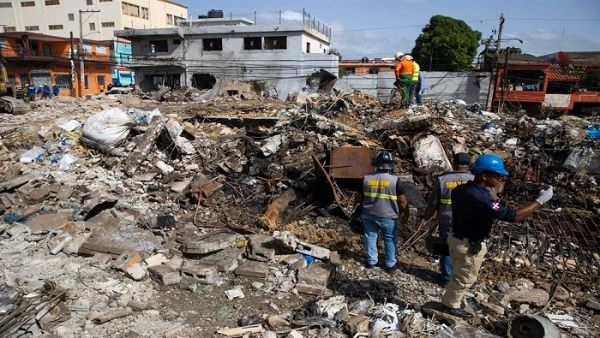
A Dominican court on Monday postponed until March a preliminary hearing against the owners of a nightclub that collapsed last year, killing more than 200 people.
The roof of the Jet Set nightclub collapsed in the early hours of April 8, 2025, during a concert by popular merengue singer Rubby Pérez, who died along with 235 other people.
Jet Set owner and manager Antonio Espaillat and his sister Maribel, who served as the club’s administrator, were arrested on charges of involuntary manslaughter but were later released on bail after posting approximately $842,500.
Both appeared at the Palace of Justice, where they were met by a small protest from relatives and friends of the victims.
“Thirty years in prison is not enough” and “President, we want JUSTICE,” read signs held by demonstrators.
The preliminary hearing determines whether there is sufficient evidence to send the case to trial. The court decided to reschedule the hearing for March 16.
“We don’t want money and we’re not demanding anything else, only justice for those who died,” said Secundino Pérez, a 75-year-old shopkeeper who lost 12 friends in the Jet Set tragedy.
“Antonio and his family celebrated Christmas sitting at a table, celebrating their freedom,” said Edgar Gómez, who lost his daughter in the collapse.
The Dominican Republic’s Public Prosecutor’s Office maintains that the defendants “significantly altered” the structure of the nightclub. Prosecutors filed formal charges in November and requested that the case proceed to trial.
The charge of involuntary manslaughter carries a sentence of three months to two years in prison.
“May your conscience never let you sleep. I lost my son,” a woman shouted through tears before the hearing, while others chanted, “Murderers, murderers, murderers.”
International
Venezuelan opposition leader dedicates Nobel Prize to Trump

U.S. President Donald Trump said last week that he was “eager” to welcome the opposition leader, who left Venezuela clandestinely with U.S. assistance, to receive her Nobel Prize in Oslo.
Machado dedicated her Nobel Prize to Trump, who nevertheless showed a very cautious attitude toward including her in any potential political transition in Venezuela.
The opposition leader said on Monday, after an audience with Pope Leo XIV, that “the defeat of evil is closer” in Venezuela following the U.S. military operation that overthrew and removed President Nicolás Maduro and his wife from the country.
Trump has claimed that he is now in control of the South American nation, stating that the primary objective at this stage is to stabilize the country before considering elections.
Venezuelan oil is Washington’s main objective, Trump added after Maduro’s overthrow.
International
Police hunt gunmen after fatal shooting in Corsica

A man was shot dead on the French Mediterranean island of Corsica, local media reported. The victim was identified as Alain Orsoni, former president of local football club AC Ajaccio, according to sources close to the investigation cited by French news channel BFMTV.
Orsoni, 71, was killed in the town of Vero, near Ajaccio, the island’s capital, while attending his mother’s funeral.
He was also a former member of the National Liberation Front of Corsica (FLNC), a nationalist organization that has long sought independence for the island, reports said.
BFMTV reported that the gunmen fled the scene and remain at large. Local police have opened an investigation into the shooting.
-

 International20 hours ago
International20 hours agoDeadly van accident near Brazil border leaves 11 dead in Bolivia
-
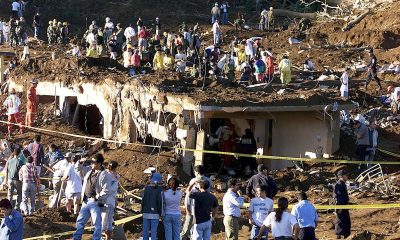
 Central America20 hours ago
Central America20 hours agoTaiwan’s $10 million donation after 2001 earthquakes allegedly diverted in El Salvador
-

 Central America20 hours ago
Central America20 hours agoU.S. and El Salvador maintain close partnership, embassy says
-

 International20 hours ago
International20 hours agoPolice hunt gunmen after fatal shooting in Corsica
-
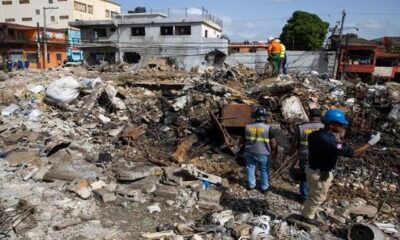
 International20 hours ago
International20 hours agoDominican court postpones hearing in deadly nightclub collapse case
-

 International20 hours ago
International20 hours agoU.S. to host Danish and Greenlandic Foreign Ministers at the White House
-

 International20 hours ago
International20 hours agoVenezuelan opposition leader dedicates Nobel Prize to Trump
-
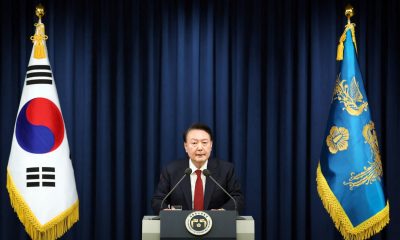
 International20 hours ago
International20 hours agoEx-President accused of bid to establish dictatorship as verdict nears in South Korea
-
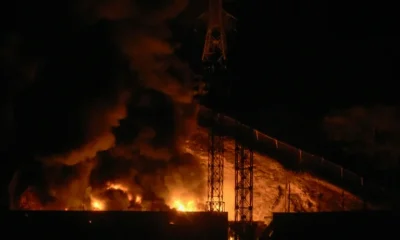
 International4 days ago
International4 days agoU.S. strike in Caracas killed 32 cuban security officers, experts say surprise was crucial
-

 International3 days ago
International3 days agoU.S. Issues Urgent Evacuation Call for Citizens in Venezuela
-
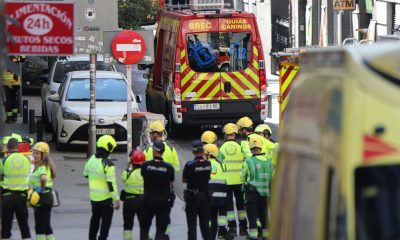
 International5 days ago
International5 days agoOne Dead and Nine Injured After Explosion in Southwest Madrid
-
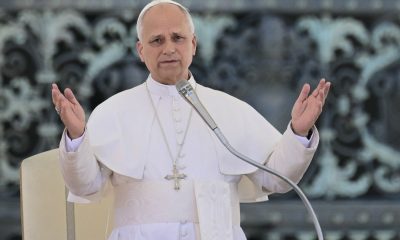
 International5 days ago
International5 days agoPope Leo XIV warns of rising “war enthusiasm” in global politics
-
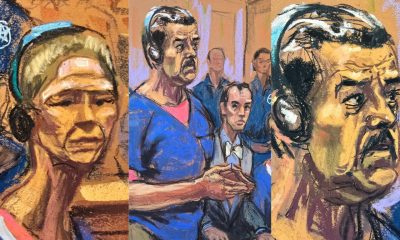
 International5 days ago
International5 days agoReport: Vatican mediation included russian asylum offer ahead of Maduro’s capture


























